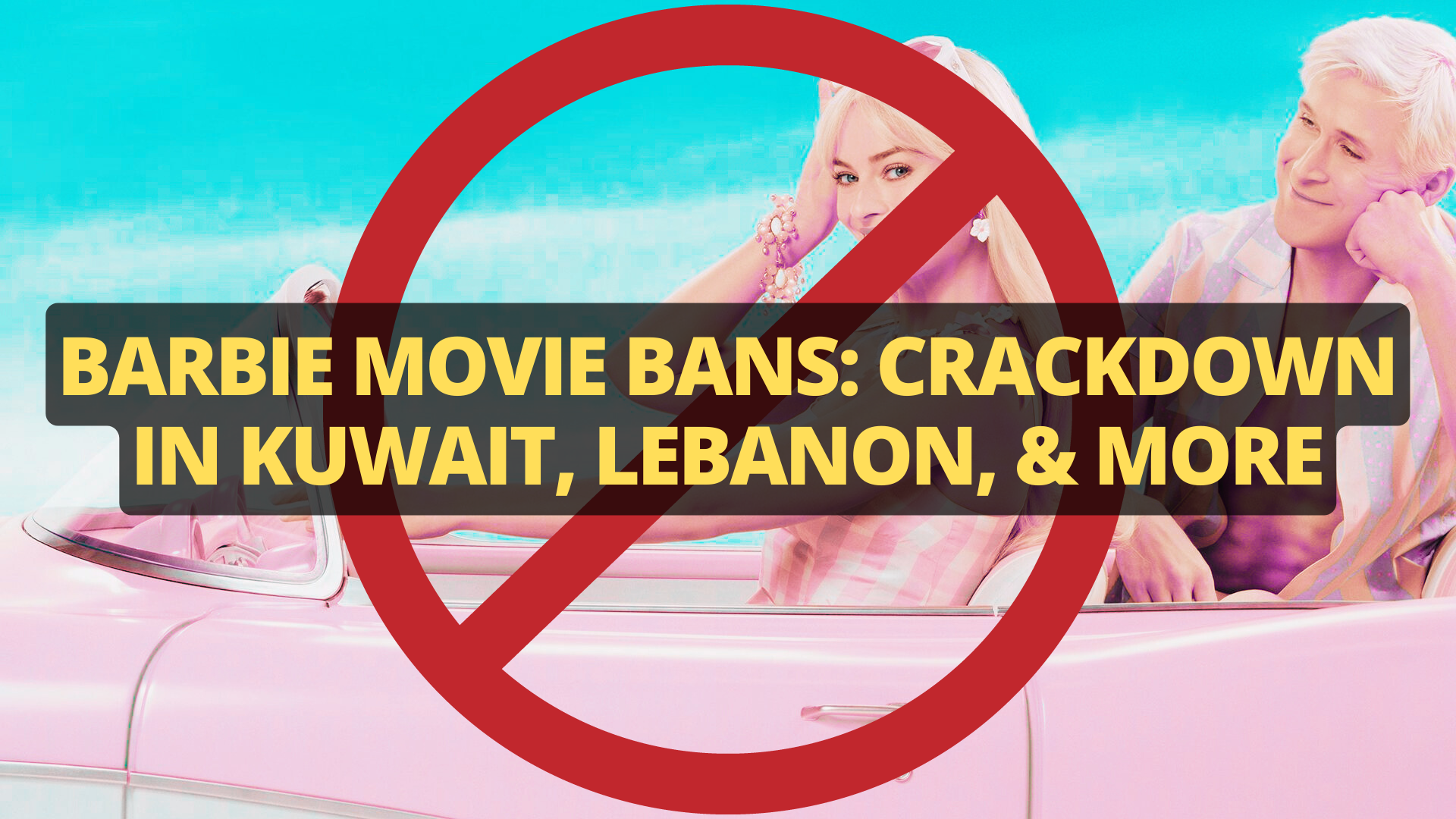
As the Barbie movie, directed by Greta Gerwig and starring Margot Robbie and Ryan Gosling, receives critical acclaim for its themes such as women empowerment and existential crisis, the highly-anticipated fantasy comedy film is being banned in many Arab and Muslim-majority countries.
So far Algeria, Lebanon and Kuwait have all banned the new “Barbie” movie, stating that the film promotes homosexuality. https://t.co/vZP2NGF9X9
— K24 TV (@K24Tv) August 15, 2023
The first Arab country to announce its intention to ban the movie was Lebanon, when the country’s Hezbollah-backed culture minister, Mohammad Mortada, urged the general security agency under Lebanon’s interior ministry to ban the movie from being screened in theaters. He argued that the film was found to “promote homosexuality and sexual transformation” and “contradicts values of faith and morality” by minimizing the importance of family in society.
I watched the film and I don’t think anything to do with homosexuality was even implied. Some counties are just backwards
— KnowYourSelf (@kindanew) August 10, 2023
Kuwait also followed Lebanon’s footsteps and announced that “Barbie” would not be released in the conservative, Muslim-majority Gulf state for “promulgating ideas and beliefs that are alien to the Kuwaiti society and public order.” The Motion Picture Censorship Committee, headed by the Undersecretary of the country’s Ministry of Information for Press, Publications, and Publications Affairs, Lafi al-Subaie, decided to ban the film.
I stand with Kuwait.
My children wouldn't see that trash movie.— Kristopher J. Anderson (@KAndersonAkron) August 10, 2023
Before Lebanon and Kuwait moved to ban the movie from being released in their respective nations, “Barbie” also faced a temporary ban in Pakistan’s most populous province, Punjab, over what officials deemed “objectionable content” in the movie. The secretary of the Punjab film censor board, Farrukh Mahmood, said they “will review the film before its release in the country.”
The Barbie movie faced backlash from governments and conservative Muslim YouTubers all over the Middle East and North African (MENA) region. Several Arab YouTube personalities, both male and female, took to their channels and accused the film of subverting traditional Islamic values and promoting homosexuality and feminism. They urged their viewers to refrain from watching the movie and even asked for it to be banned in their countries.
Interestingly enough, however, other neighboring Arab countries such as the United Arab Emirates, Saudi Arabia, and Bahrain decided to screen the Barbie movie after delaying its release and after censor boards of mentioned Gulf nations edited the film to remove scenes they deemed inappropriate or challenged social norms.
I spoke to Saudis after they saw Barbie to hear their differing interpretations:
“The message is that you are enough, whatever you are,” said Mohammed, 21.
“The world doesn’t work without Ken or Barbie; they need to complete each other," said Abrar, 28.https://t.co/gZTiWcKsvV— Vivian Nereim (@viviannereim) August 14, 2023
Barbie was not the first movie to face backlash in the Arab world for its alleged promotion of feminism and LGBTQIA+ values. Last June, the much-awaited Spider-Man: Across the Spider-Verse was banned from cinemas in the United Arab Emirates and other Muslim-majority countries in the Gulf region due to a scene in the film’s trailer where a poster with the words "Protect Trans Lives" was shown in Gwen’s bedroom.
The movie was also banned in Vietnam, although the reason for the ban was due to a scene showing a seemingly distorted world map, where a few dash lines were portrayed, which looked similar to China’s nine-dash line in the South China Sea.
its all femenist propaganda. and no they havent banned it in Lebanon
get your facts right— Thunderflame005 (@YeahBoi_YT) August 12, 2023
Despite accusations of promoting homosexuality, the Barbie movie didn’t show explicit LGBTQIA+ content or portray LGBTQIA+ characters, although many actors and actresses belonging to the LGBTQIA+ community were cast in the film.
